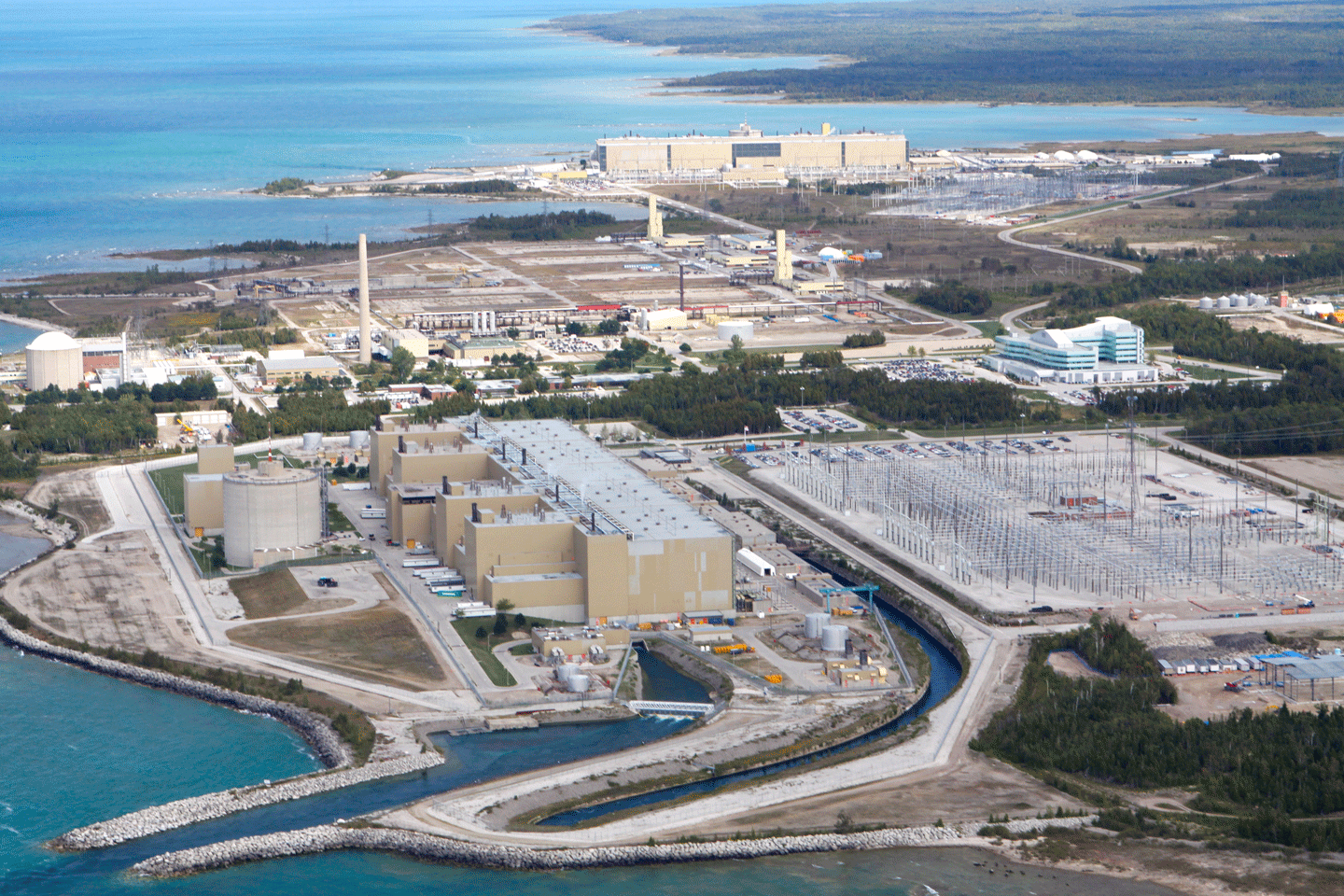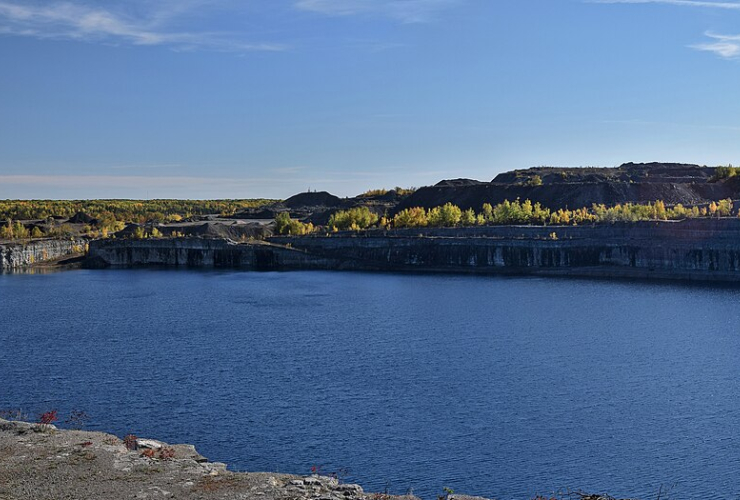The wildfire smoke that has recently blanketed many communities was a big wake-up call for Canadians that climate change is not some distant threat. But at the same time, it seems to have further clouded the vision of the Ontario government, where Premier Doug Ford has tried to deny that bigger, fiercer fires had anything to do with record global temperatures and a bone-dry spring.
So it’s not really surprising a government that just can’t seem to take climate change seriously is embarking on a huge expansion on fossil gas burning despite the climate emergency.
In May, Ontario’s Independent Electricity System Operator (IESO) announced it had accepted proposals to expand the generation capacity of a number of gas-fired power plants around the Greater Toronto Area and to build two new plants in the Windsor area.
And that’s just the tip of the province’s climate-wrecking iceberg. The IESO also stated it wants to contract for up to 1,500 megawatts of new polluting gas power with a goal of increasing gas-fired electricity production by 500 per cent by 2035.
The IESO and Ontario Energy Minister Todd Smith justify this destructive direction by making scary claims about lights going out and businesses fleeing Ontario if power production is not ramped up immediately with more gas burning.
But a report commissioned by the IESO tells a very different story: The Dunsky Report explains how Ontario can forgo more gas burning by embracing rooftop solar, load controls that shift electricity demand from peak to off-peak periods, stationary batteries, and bi-directional chargers that allow our electric vehicles’ batteries to provide power back to the grid during peak demand.
A report just out from the RBC Climate Action Institute makes much the same point: Ontario can save at least $500 million by embracing smart thermostats and AI-enhanced HVAC systems instead of building new gas plants. This is a report from the bank that is Canada’s biggest lender to the fossil fuel industry, not something issued by environmental organizations.
We can also avoid the need to burn gas to meet our electricity needs during the summer by importing waterpower from Quebec. While Ontario’s demand for electricity peaks during hot summer days when our air-conditioners are running full out, Quebec’s demand for electricity peaks during cold winter nights since most of their homes are electrically heated. As a result, Hydro-Québec has a huge surplus of hydro-electric generation capacity available for exports to Ontario during the summer.
Expanding the use of fossil gas will also lead to missed economic opportunities. Companies are now looking to locate in places that can offer plentiful zero-carbon power, and the renewable energy business is booming worldwide.
Instead of seizing these massive opportunities, Ford is planning to undo 60 per cent of the huge greenhouse gas pollution reductions Ontario achieved by phasing out its dirty coal plants.
The IESO did include some significant commitments to energy storage projects in its recent announcement, which is the good news.
The bad news is the province has done nothing to develop new renewable energy supplies that could feed into this storage: The IESO has not contracted for a single kWh of renewable energy in the past five years.
The Ford government is robbing our province of innovative green industries and a zero-carbon power system. Instead, the premier is dragging the province backwards to an era when burning stuff was the norm. It’s a recipe for scorching the province’s economy while making the climate crisis worse.
All this flies in the face of the federal government’s commitment to ensure a net-zero carbon electricity system across Canada by 2035. Instead of taking its cue from this federal commitment that is vital to Canada achieving its climate targets for the first time, the Ford government seems to be trying to push gas plants through the small window that is left before federal Clean Electricity Regulations take effect.
So it is now up to Justin Trudeau's Liberal government to demonstrate it is serious about its commitment and issue regulations that prohibit the building of new gas-fired generation capacity in Ontario — effective immediately — and require Ontario to move to a net-zero carbon electricity grid by 2030.
Ontario can, and should, move to a net-zero carbon grid five years in advance of Alberta, Saskatchewan and Nova Scotia, which currently get the majority of their electricity from fossil fuels.
Regulations full of loopholes that can be exploited by a province eager to burn more gas are not going to cut it with Canadians, who increasingly understand we can’t carry on with business as usual and expect a safe climate for our kids and ourselves.
That’s something federal NDP Leader Jagmeet Singh would do well to remind the prime minister about.
Angela Bischoff is director of the Ontario Clean Air Alliance, the small but mighty group that led the successful campaign to phase out Ontario’s five dirty coal-fired power plants. The alliance is now working to move Ontario towards a 100 per cent renewable energy future through an integrated combination of energy conservation and efficiency, cost-effective made-in-Ontario green energy, and energy co-operation with Hydro-Québec.
I'm curious on what basis the
I'm curious on what basis the author believes the federal government could force a province to generate electricity in a certain fashion. Similarly I'm curious under what authority the feds could ban a province from building a gas-fired generation station.
A court case affirmed the right of the feds to set a requirement for provincial carbon taxes, but that's quite different to saying "you can't build that".
???
I have not read the SCC
I have not read the SCC decision, but the CBC reportage seems to answer the question.
https://www.cbc.ca/news/politics/supreme-court-federal-carbon-tax-consti...
"Chief Justice Richard Wagner, writing for the majority, said the federal government is free to impose minimum pricing standards because the threat of climate change is so great that it demands a co-ordinated national approach.
"He agreed with the federal government's argument that climate change is a pressing matter of national concern and said it's constitutionally permissible for Ottawa to take the lead on a threat that crosses provincial boundaries.
"Climate change is real. It is caused by greenhouse gas emissions resulting from human activities, and it poses a grave threat to humanity's future," Wagner wrote.
Wagner found that Ottawa can act under the Constitution's "peace, order and good government" clause, better known as POGG — which gives the federal government authority to enact laws to deal with issues that concern the entire country.
[snip] ... the Supreme Court tends to defer to the division of powers set out in sections 91 and 92 of the Constitution Act, 1867.
In this case, Wagner said, invoking POGG is justified.
The POGG doctrine applies when there is a "provincial inability to deal with the matter" and where the "failure of one or more provinces to co-operate would prevent the other provinces from successfully addressing it."
That's it in a nutshell. And my guess is it possibly could be extended to reducing total emissions, fossil fuel production caps, etc. The threat named is climate change ... not lack of a carbon tax. The science is totally clear on the absolute need to stop *producing* gas and oil.
(The province would appear to
(The province would appear to be "unable" to deal, because of DoFo's profound lack of knowledge -- or perhaps inability to acquire such. I'd wonder whether a province could demand the feds act, for the same reason but applied in the opposite direction.)
Canada is a high per cavity
Canada is a high per cavity carbon producing country. Third world countries are low per capita carbon producing countries. Trudeau is charging Canadians $thousand in carbon taxes to reduce Canada's carbon emissions. Can someone please explain how bringing millions of third world immigrants into Canada will reduce Canada's carbon emissions. Thanks.
Thanks for providing that.
Thanks for providing that.
I don't read into those statements around POGG the same as you vis-a-vis Ontario electricity generation but I'm not a lawyer.
It also makes no sense that the feds continue to green light oil and gas extraction expansion while prohibiting a gas-fired generation plant. On the other hand, I believe a focus on scope 3 emissions arising from our exports is wrong-headed and, um, a waste of activist energy; we should be focused on reducing our own GHG emissions. In my view, that means tossing out carbon taxes but imposing an economy-wide hard cap (and some permitted trading) which is reduced year-over-year. (I believe carbon tax regimes can be gamed, which, I think, is why oil and gas supports them).
I'm with you in believing that actions must directly address the problem, rather than being merely hopeful through indirect actions.
This makes one want
This makes one want politicians to be required to pass numeracy and science tests before taking office. Is there no offence that Ford and his Ministers can be charged with?
You wouldn't even need
You wouldn't even need specific science knowledge: that can be acquired from advisors ... but it would require both some commitment to rational thought, and some activity in the "conscience" part of human capacity.
But it becomes clear-ish that neither our constitution nor other laws were constructed with the end result of ensuring democracy ... or rule of law, for that matter.
Canada is a high per cavity
Canada is a high per cavity carbon producing country. Third world countries are low per capita carbon producing countries. Trudeau is charging Canadians $thousand in carbon taxes to reduce Canada's carbon emissions. Can someone please explain how bringing millions of third world immigrants into Canada will reduce Canada's carbon emissions. Thanks. I am sure I will get many replies form the climate activists.
"Canada is a high per cavity
"Canada is a high per cavity carbon producing country."
True enough. Dental emissions are skyrocketing. Composite resin fillings are made of acrylic (C5O2H8). A plastic with 5 carbon atoms.
*
Sure, Canada could cut emissions faster if it locked the gates to newcomers. But why draw the line at new immigrants? Deport the older ones too. To be fair, everybody whose ancestors came after 1492. That would really reduce Canada's emissions.
*
The main factor driving consumption, energy use, and emissions is wealth.
Oxfam 2015: "Extreme Carbon Inequality"
The top 10% of emitters are responsible for almost half of global emissions.
The top 20% of emitters are responsible for 70% of emissions.
The poorest half of the global population are responsible for only 10% of global emissions.
*
Oxfam 2021 Update: "Carbon emissions of richest 1% more than double those of poorest half of the world" (Oxfam, 2021)
Between 1990 and 2015 the carbon emissions of the richest 1% were more than double those of the 3 billion people who made up the poorest half of humanity.
The richest 10% (c 630 million people) accounted for over half (52%) of the CO2 emissions. The richest 1% accounted for 15% of emissions – more than twice that of the poorest half of humanity (7%).
*
What does that suggest? The best climate solution is not to shut the doors to newcomers but deport the rich. Or else reduce extravagance and emissions. Keep immigrants coming, but clamp down on the wealthy, especially the top ten and one percent.
*
RE: federal carbon pricing scheme
After rebate, my household comes out ahead. Including income impacts, the average Alberta household in the bottom forty percent comes out ahead ($370 in 2023, $327 in 2030-31). So says the PBO.






Comments